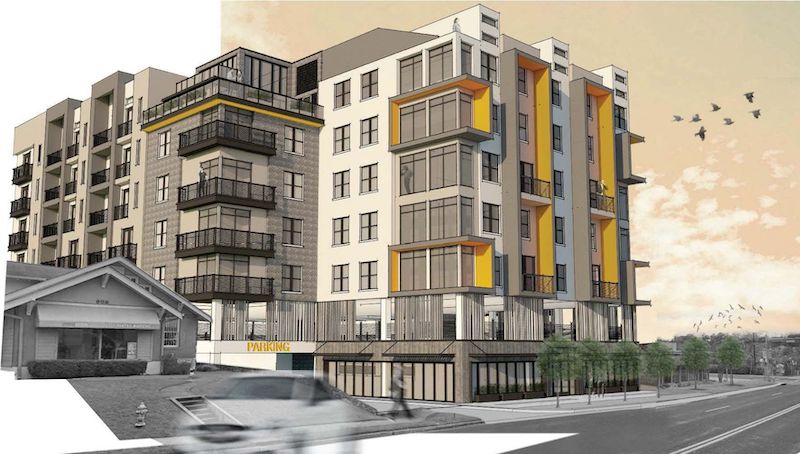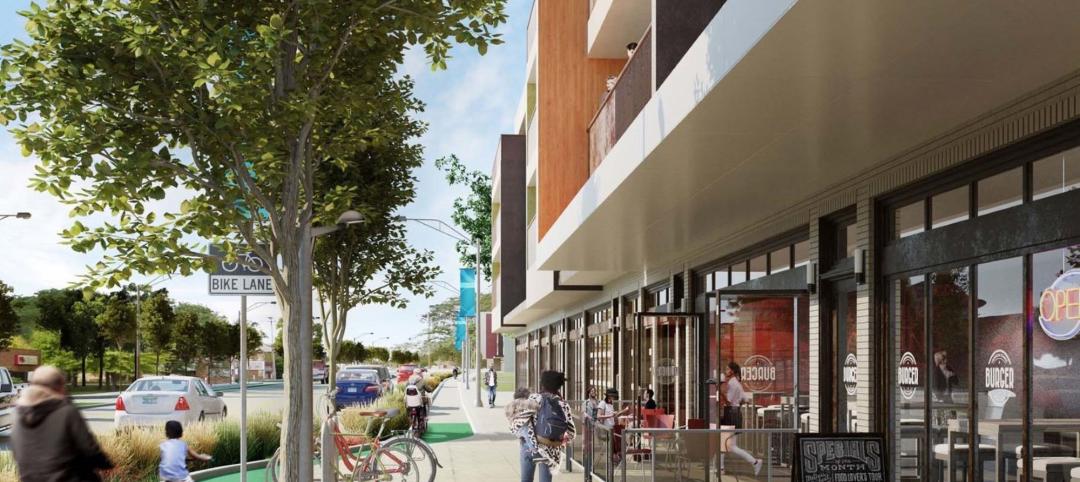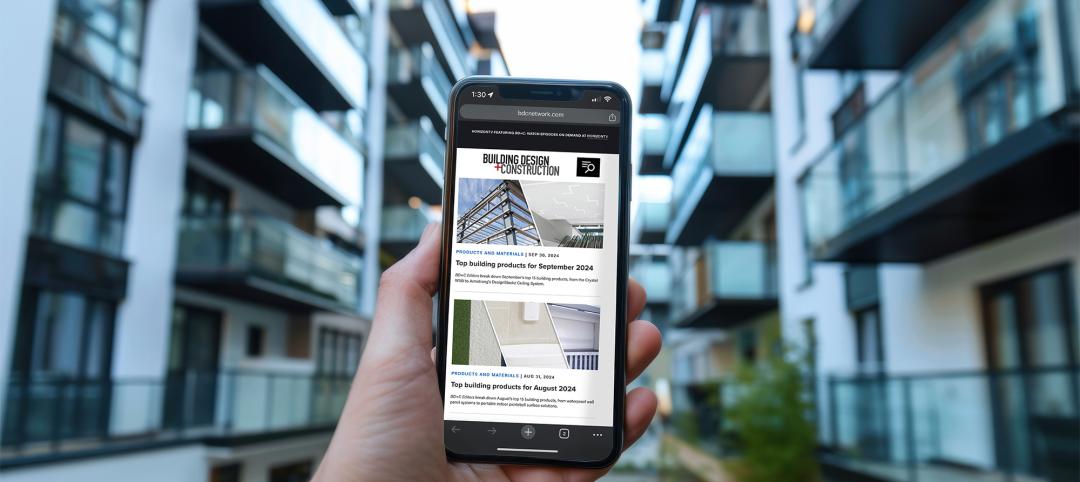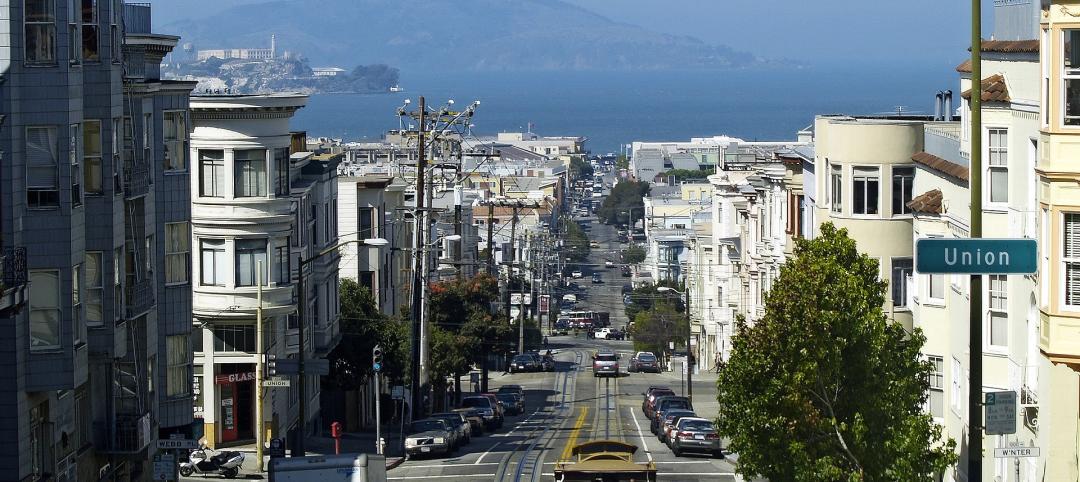Transwestern Development Co. has acquired a 0.56-acre site and a 1.6-acre site in Austin, Texas with the intention to build two micro-unit communities. The communities will be the second and third micro-unit developments for the company in Downtown Austin.
The 1.6-acre site, located between East Third and East Fourth Streets on Waller Creek, is dubbed Block 36 and will include 263 units and a 3,000-sf restaurant space on the ground floor.
Block 36 will comprise primarily studio units with 14% of the community slated for two-bedroom units. Apartments will average 443 sf and include Murphy and platform beds, hideaway kitchen modules, convertible coffee/dining/bar tables, modular furniture, 10-foot ceiling heights, and stainless steel, Energy Star-certified appliances.
See Also: U.S. multifamily market stays strong into 4th quarter 2019
The community will feature amenities such as a resort-style pool, bike storage, a fitness center, a clubroom and business lounge, and an elevated courtyard with fire pits, grills, and outdoor seating.
Block 36 broke ground in January of 2019 with delivery in the first half of 2020. Wilder Belshaw is the project’s architect.
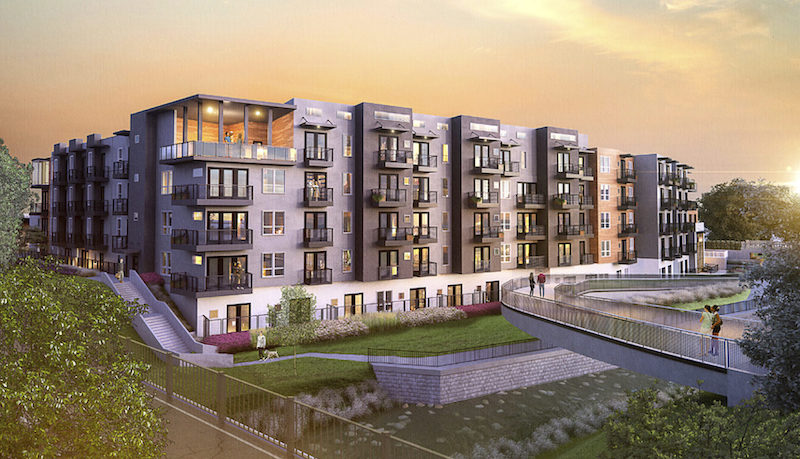 Block 36. Rendering: Wilder Belshaw Architects / Transwestern.
Block 36. Rendering: Wilder Belshaw Architects / Transwestern.
Transwestern’s third micro-unit development in Austin will rise at the 0.56-acre site acquired by the company in late 2019. Located at 817 W. 12th St., the development will include 147 units and 3,600 sf of retail space on the ground floor.
The West 12th Street project will consist of studio, one-, and two-bedroom units that average 444 sf. Like Block 36, this development’s units will feature Murphy and platform beds, hideaway kitchen modules, and convertible coffee/dining/bar tables. The community will have a resident clubhouse, pool, bike storage, laundry facilities, courtyard, and fitness center.
The project is slated to break ground in the second half of 2020 with delivery in 2022. Both projects will fill a gap in Austin’s rental market for those who wish to live in the city for under $1,500 a month. They will join the Indie, Transwestern’s first micro-unit development in Austin, in offering better value for Austin renters seeking a premium product in a compact space.
Related Stories
MFPRO+ New Projects | Oct 30, 2024
BIG’s One High Line finally reaches completion in New York City’s West Chelsea neighborhood
One High Line, a luxury residential project spanning a full city block in New York’s West Chelsea neighborhood, reached completion this summer following years of delays related to investor lawsuits.
MFPRO+ New Projects | Oct 30, 2024
Luxury waterfront tower in Brooklyn features East River and Manhattan skyline views
Leasing recently began for The Dupont, a 41-story luxury rental property along the Brooklyn, N.Y., waterfront. Located within the 22-acre Greenpoint Landing, where it overlooks the newly constructed Newtown Barge Park, the high-rise features East River and Manhattan skyline views along with 20,000 sf of indoor and outdoor communal space.
Multifamily Housing | Oct 28, 2024
A case for mid-rise: How multifamily housing can reshape our cities
Often referred to as “five-over-ones,” the mid-rise apartment type is typically comprised of five stories of apartments on top of a concrete “podium” of ground-floor retail. The main criticism of the “five-over-one” is that they are often too predictable.
Adaptive Reuse | Oct 22, 2024
Adaptive reuse project transforms 1840s-era mill building into rental housing
A recently opened multifamily property in Lawrence, Mass., is an adaptive reuse of an 1840s-era mill building. Stone Mill Lofts is one of the first all-electric mixed-income multifamily properties in Massachusetts. The all-electric building meets ambitious modern energy codes and stringent National Park Service historic preservation guidelines.
MFPRO+ News | Oct 22, 2024
Project financing tempers robust demand for multifamily housing
AEC Giants with multifamily practices report that the sector has been struggling over the past year, despite the high demand for housing, especially affordable products.
Products and Materials | Oct 17, 2024
5 multifamily tech products for your next project
Multifamily housing and technological upgrades go hand-in-hand. From the rise in electric vehicle charging needs to the sophistication of smart home accessories, tech products are abound in the multifamily space.
Codes and Standards | Oct 16, 2024
North Carolina’s code policies likely worsened damage caused by Hurricane Helene
The North Carolina Legislature’s rejection of building code updates likely worsened the damage caused by Hurricane Helene, code experts say. Over the past 15 years, lawmakers rejected limits on construction on steep slopes, which might have reduced the number of homes destroyed by landslides.
MFPRO+ News | Oct 16, 2024
One-third of young adults say hurricanes like Helene and Milton will impact where they choose to live
Nearly one-third of U.S. residents between 18 and 34 years old say they are reconsidering where they want to move after seeing the damage wrought by Hurricane Helene, according to a Redfin report. About 15% of those over age 35 echoed their younger cohort’s sentiment.
Student Housing | Oct 9, 2024
University of Maryland begins work on $148 million graduate student housing development
The University of Maryland, in partnership with Campus Apartments and Mosaic Development Partners, has broken ground on a $148.75 million graduate student housing project on the university’s flagship College Park campus. The project will add 741 beds in 465 fully furnished apartments.
MFPRO+ News | Oct 9, 2024
San Francisco unveils guidelines to streamline office-to-residential conversions
The San Francisco Department of Building Inspection announced a series of new building code guidelines clarifying adaptive reuse code provisions and exceptions for converting office-to-residential buildings. Developed in response to the Commercial to Residential Adaptive Reuse program established in July 2023, the guidelines aim to increase the viability of converting underutilized office buildings into housing by reducing regulatory barriers in specific zoning districts downtown.


